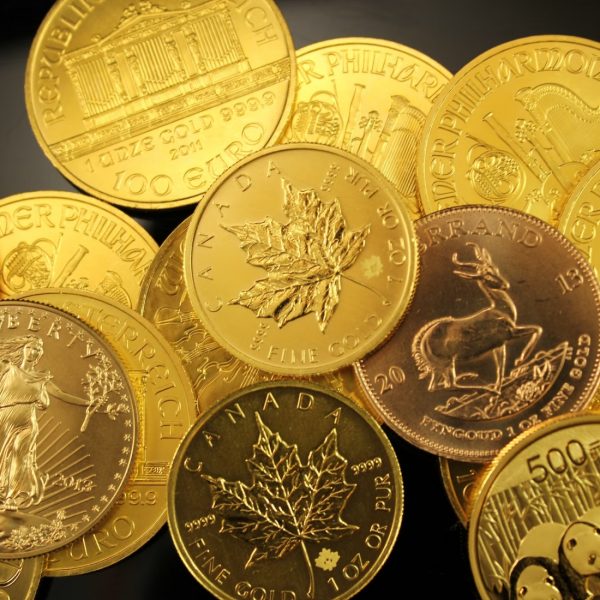What are the Most Common Questions About UK Gold Investment?
03/08/2025Daniel Fisher
Free & fully insured UK Delivery. Learn more
Secure & flexible payments. Learn more

Buyback Guarantee Learn more

While some people are seasoned gold investors, gold investment in the UK can be a whole new world for many. In the past decade, gold investment has evolved to become far more mainstream, but most investors remain novices. As such, we regularly help our customers answer questions they have about the market, buying process and how to sell.
One thing’s for sure, you shouldn’t be embarrassed or shy to ask these questions. You need to feel comfortable and understand any asset if you’re considering investing your hard-earned cash. As leading gold investment UK specialists we’ve heard all possible questions many times.
But what are the most common questions we receive?
Clearly, there’s a choice when you come to buy your physical gold. Questions range from whether you should buy bars or gold coins, 22 or 24-carat gold, or whether various year coins are worth investing in over others.
It’s certainly worth doing your research independently as well as seeking advice from experts. Together you should be able to make the right choice. Gold should always be seen as a medium to long-term investment, so there’s no rush to buy.
Make sure you’re happy with the type of gold bar or coin you wish to buy before taking the plunge. While we at Physical Gold focus on selecting the best type of gold for investment purposes, other gold merchants are simply shops and might try to persuade you to buy a type of gold which they have in stock and can’t shift.
While we always like to provide bespoke, nuanced, and targeted guidance to the question of gold type, there are a few basic rules that apply to most UK gold investors;
Free ultimate guide for keen precious metals investor

The golden question (if you’ll pardon the pun!), is what the prospects are for gold in 2025 and beyond, and whether now is a good time to buy. Be wary of any gold dealer who guarantees returns. No-one has a crystal ball.
The exact level at which you enter the market isn’t crucial, as gold generally gains in value above the rate of inflation in the long term. However, a good dealer will certainly help you buy when the price dips to pick up that extra bit of value and also help you select gold which offers value at that time of purchase. For example, it may be a bad time to buy Maple Leaf coins as there may be a shortage leading to inflated premiums, whereas other coins may provide a buying opportunity as they’re currently trading cheaper.
One shrewd method of eradicating the timing issue is to drip-feed money into gold or split your investment into 2 or 3 tranches. Therefore you iron out some of the volatility and secure various prices, hedging your bets.
Dollar Cost Averaging (DCA) is another investment method of monthly or weekly purchases to consistently buy gold at the underlying price. This way your average gold price is spread out over your entire investment timeframe. However, buying little and often does mean that you’ll miss out on dealer discounts for buying in higher quantities at one time. The price for one coin is is considerably higher than the price for 100 of the same coin.
Read our in depth guide on When to buy gold.
Why, how, and when to buy gold coins
If an investment is the main purpose for buying gold, then it’s not only your buy and sell price which contributes to overall returns. Tax plays a crucial role also.
Everyone wants to know the best ways to invest in gold. Seeking guidance from a reputable gold dealer will help select tax-efficient gold as gold investment in the UK has several tax advantages. Anyone who’s watched James Bond films may dream of owning huge gold bars. But selling them may incur 28% Capital Gains Tax. Others may not realise that 18-carat gold attracts VAT, whereas 22-carat and 24-carat coins and bars are exempt. UK Tax-free gold coins are usually a safe bet for cash investors, and Pension Gold is a great method of adding bullion to your retirement plan while avoiding VAT, CGT and receiving tax relief on your purchase.
Read our full analysis of tax implications of gold and silver for UK investors.

Questions range simply from where to store gold, to the exact requirements and costs of each specific option. Certainly, if you’re seeking security and protection for your physical gold, then allocated and segregated storage is the only sure way to be safe. This means that the assets are legally yours, and they’re completely ringfenced.
Ensure you receive the correct paperwork to prove your ownership. We’ve heard of horror stories of where gold bought and supposedly stored, wasn’t available when clients wished to taken delivery of that gold. Other rumours suggest that unallocated gold accounts will crumble if too many investors wish to sell at the same time.
Start off by contemplating what you’re trying to achieve from your investment. Is your primary motivation to maximise returns, or is it to buy small pieces of gold to pass onto grand children one day. Perhaps your objectives are to blend a hobby for collecting gold coins with a long term investment.
Your investment time-frame and appetite for risk may also help determine whether to go for older numismatic coins or simple bullion coins or bars.
We provide guidance as to which choices will best suit your needs. And for those who feel they want a mixed and balanced tax free portfolio, we offer a service to create a portfolio for you.
Read our Complete Guide to Buying Gold.


Live Gold Spot Price in Sterling. Gold is one of the densest of all metals. It is a good conductor of heat and electricity. It is also soft and the most malleable and ductile of the elements; an ounce (31.1 grams; gold is weighed in troy ounces) can be beaten out to 187 square feet (about 17 square metres) in extremely thin sheets called gold leaf.
Live Silver Spot Price in Sterling. Silver (Ag), chemical element, a white lustrous metal valued for its decorative beauty and electrical conductivity. Silver is located in Group 11 (Ib) and Period 5 of the periodic table, between copper (Period 4) and gold (Period 6), and its physical and chemical properties are intermediate between those two metals.